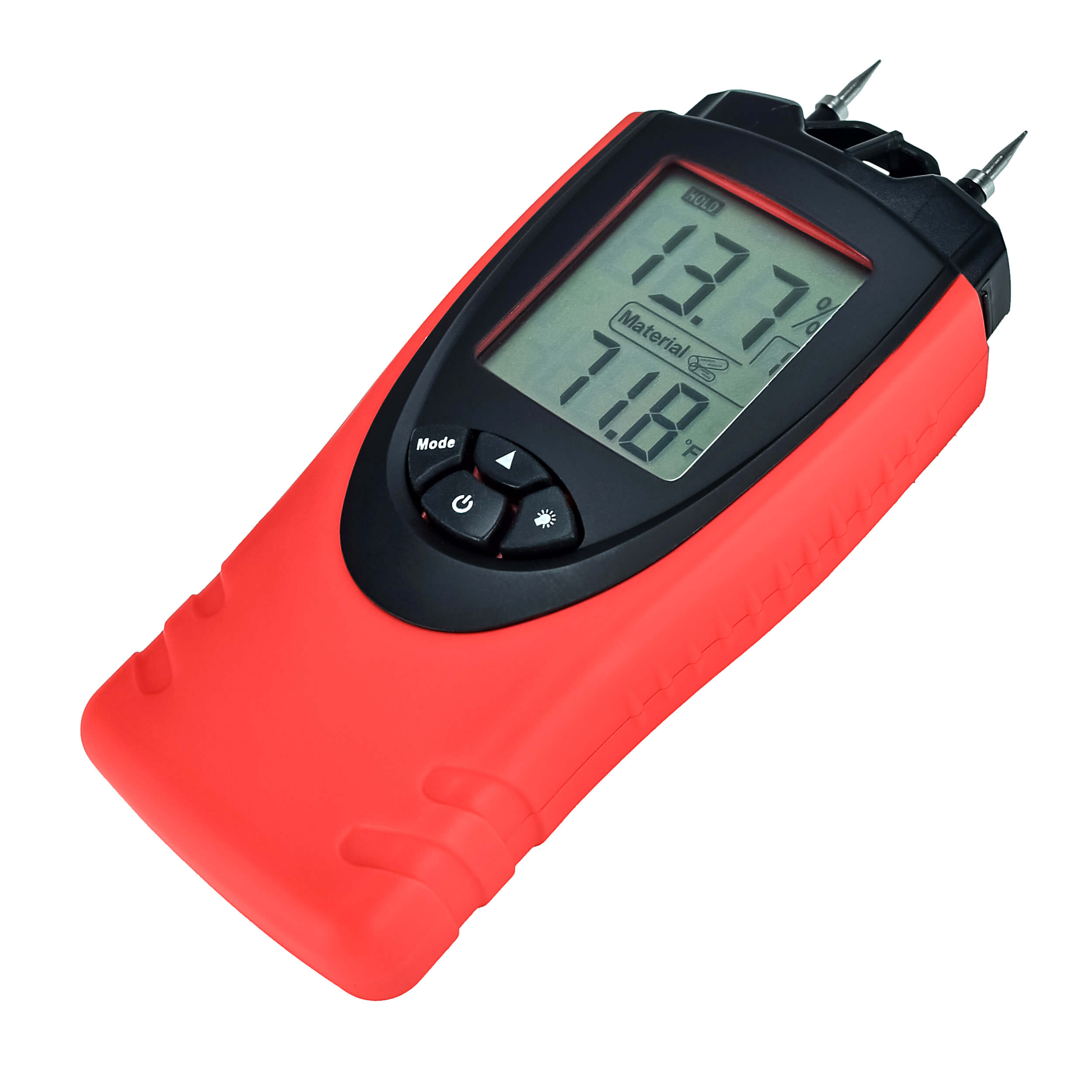The Science Behind Moisture Meters: How They Function and Why They're Essential
Wiki Article
The Ultimate Overview to Wetness Meters: A Comprehensive Overview and Just How They Can Save You Cash
In the world of building maintenance, construction, and various sectors, the significance of accurately gauging dampness degrees can not be overstated. Dampness meters act as essential devices in identifying and monitoring moisture web content in materials, assisting in avoiding costly damages and guaranteeing the top quality of products. Understanding the nuances of various sorts of moisture meters, their applications, and the possible cost-saving benefits they use can be a game-changer for experts and services alike. Finding just how these devices can not just streamline processes yet likewise add to financial cost savings is a trip worth starting.Kinds Of Moisture Meters
One common kind is the pin-type dampness meter, which gauges the electric resistance in between 2 pins placed right into a material. Pinless moisture meters, on the various other hand, use electro-magnetic sensing unit plates to check a larger area without causing damage to the material's surface area.
Infrared dampness meters measure the thermal homes of a product to identify its wetness content non-invasively, making them helpful for applications where pin or pinless meters might not be suitable. Recognizing the different types of wetness meters readily available can help markets pick the most proper tool for their details wetness measurement demands.

Benefits of Using Wetness Meters
Moisture meters offer important advantages in precisely checking and examining wetness levels in diverse materials and environments. One of the primary advantages of making use of wetness meters is the prevention of possible damages caused by excess moisture.
In addition, utilizing dampness meters can lead to enhanced power efficiency. In agricultural setups, wetness meters play a vital function in maximizing plant returns by allowing farmers to check soil wetness degrees and make informed watering choices.
How to Pick the Right Dampness Meter
When picking a dampness meter, it's crucial to make certain that the meter is appropriate for the particular material you will certainly be screening. Different products have varying electrical homes that can affect moisture analyses, so choosing a meter made for your product is important for accurate outcomes. By thoroughly evaluating these variables, you can select a moisture meter that fulfills your requirements and provides precise wetness measurements for your jobs.Proper Strategies for Moisture Meter Use

Cost Savings Through Moisture Meter Applications
How can the tactical utilization of moisture meters result in significant cost financial savings throughout different markets? Dampness meters play a crucial duty in expense savings by protecting against possible damages and guaranteeing quality assurance in different sectors. In the agriculture market, moisture meters help in identifying the optimum time for collecting crops, preventing over-drying or excess moisture that can impact the end product's quality. This specific tracking helps farmers stay clear of unnecessary losses and optimize their return.
Similarly, in building, moisture meters assist prevent pricey damages by detecting wetness degrees in building products, such as timber or concrete, which can result in architectural issues otherwise addressed immediately. By identifying issue locations early on, contractors can take rehabilitative steps to stay clear of extensive repair services or substitutes, ultimately saving time and cash.
Furthermore, in the food processing market, dampness meters are important for keeping an eye on item quality and guaranteeing compliance with safety and security regulations. see this site By accurately determining wetness web content in foodstuff, producers can stop perishing, maintain freshness, and minimize waste, resulting in considerable expense financial savings. Generally, the calculated application of dampness meters is a useful financial investment that can lead to substantial cost reductions and improved efficiency throughout numerous markets.
Verdict
Finally, dampness meters are beneficial devices for detecting and measuring dampness degrees in various products. By making use of the ideal wetness meter and complying with appropriate techniques, users can effectively protect against expensive problems triggered by excess dampness. Buying a high quality wetness meter can result in significant cost savings in the lengthy run by determining prospective issues early and enabling timely removal. Inevitably, dampness meters are important instruments for maintaining the stability and long life of materials and structures.Wetness meters offer as vital devices in finding and checking moisture content in products, assisting in avoiding pricey damages and making sure the quality of products. Infrared dampness meters measure the thermal properties of a product to establish its moisture material non-invasively, making them valuable for applications where pin or pinless meters may not be suitable.Dampness meters provide very useful advantages in accurately examining and monitoring dampness degrees in varied materials and environments. In agricultural setups, dampness meters play a crucial role in enhancing crop returns by making it possible for farmers to monitor soil wetness levels and make notified irrigation choices.In final thought, wetness meters are beneficial devices for spotting and determining moisture degrees in various materials.
Report this wiki page